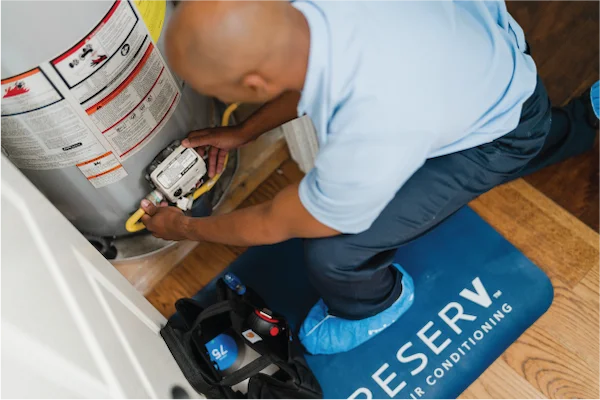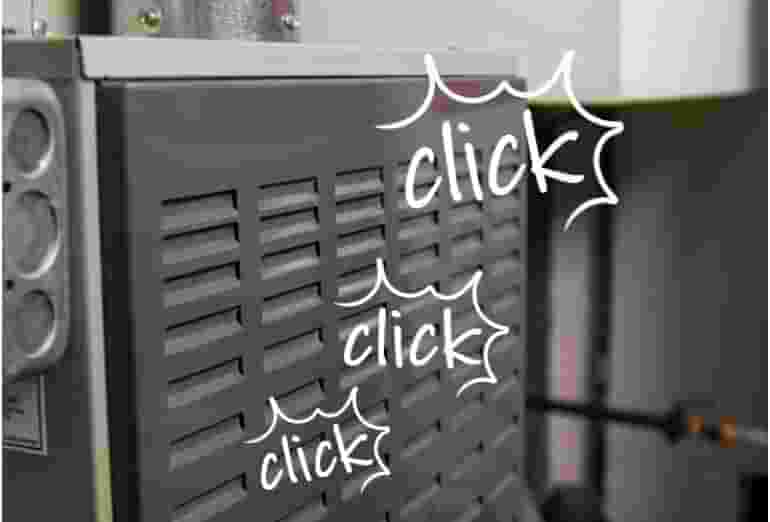Aire Serv installs all types of water heaters. Our service professionals can help you determine the best choice for your home while considering your budget, lifestyle, and energy efficiency needs. Some of the most popular choices we install include:
- Heat pump water heater: Heat pump water heaters have a storage tank of hot water that’s kept warm using heat from the air instead of a heating element.
- Storage water heater: A storage or tank water heater has a large tank of water that’s kept warm with a heating element for when you need it.
- Tankless water heater: Tankless water heaters heat water on demand because water passes through the heating element as it’s needed. They’re more energy efficient than other types of water heaters and take up very little space because there isn’t a tank.
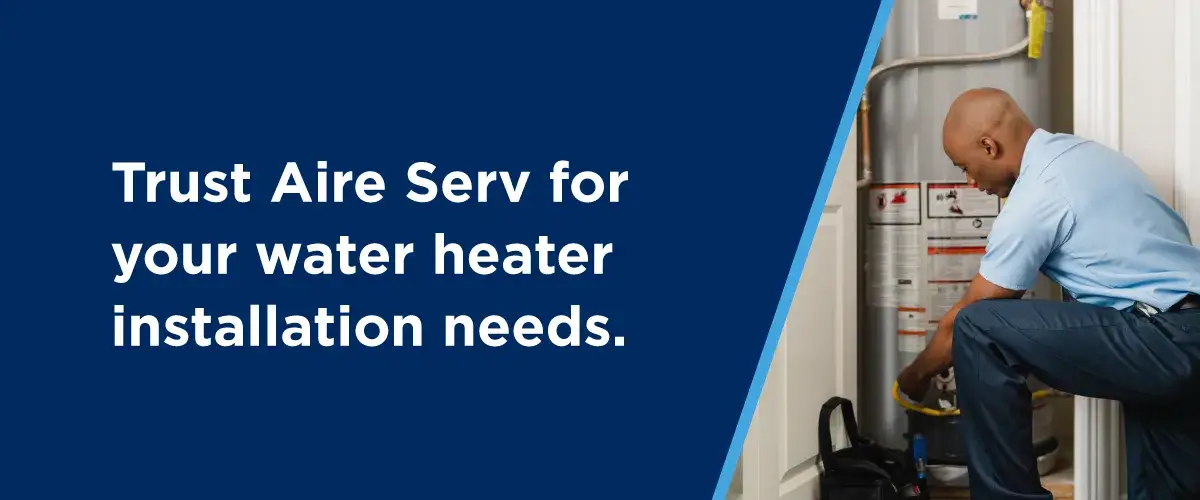
When To Call Aire Serv for Hot Water Heater Installation
Different signs indicate when an electric or gas water heater isn’t working. In many cases, water heater repair can be an option, but it may be time for a new system. We’ll help you make the best decision for your home, so you can enjoy hot water whenever you need it.
If any of these red flags show up, it’s time to call in the pros for a look:
- No hot water (in part or all of your home)
- Running out of hot water more quickly than usual without a change in user pattern
- Only cool or lukewarm water
- Discolored or smelly water
- Water heater leaks
- Noises from your tank
- Decrease in water pressure
- Your unit is old (about 7-10 years for a traditional tank model or 20 years for a tankless model)
- Increased energy bills
If you’re dealing with frequent repairs on an inefficient older model, consider replacing the unit.
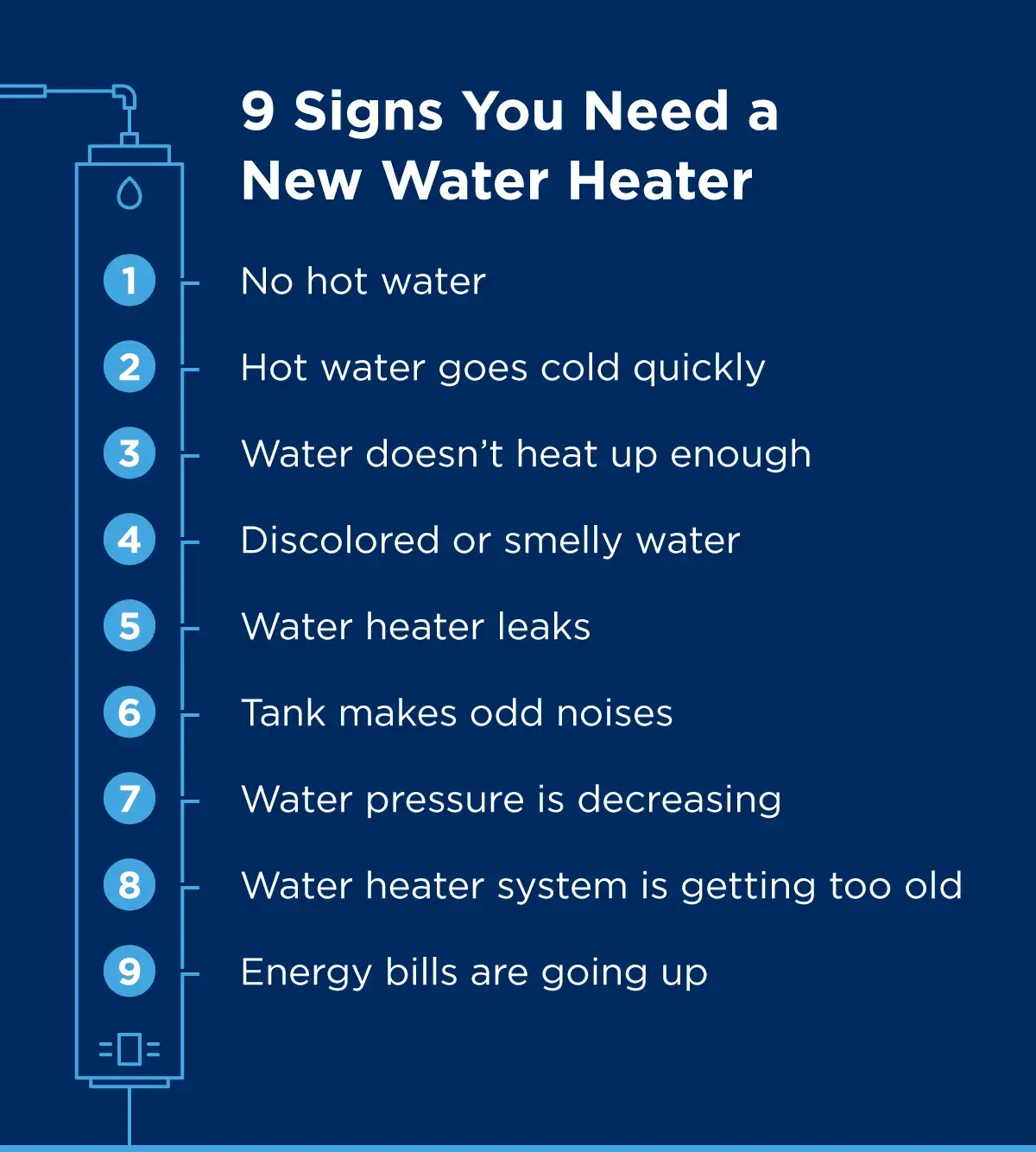
Why Choose Aire Serv for Your Water Heater Installation
With over 30 years of experience, Aire Serv has the expertise to provide the best experience for any services we offer:
- Guaranteed Upfront pricing: We’ll provide an upfront quote for your service, so you’re never hit with surprise fees.
- Neighborly Done Right Promise™: We don’t believe in cutting corners. We ensure your satisfaction.
- Experts in service: All Aire Serv service professionals are qualified and vetted to provide the best experience for you.
- Call 24/7 : Emergencies don’t wait. There are no hidden fees for work done on weekends, nights, or holidays.
Enjoy lifelong trustworthy water heater service
When you need a water heater replacement or repair, you want a service professional you can trust. Your Aire Serv is locally owned — they know you and your community so they can provide superior service for years to come. With the Aire Serv Advantage Plan Membership, enjoy benefits like:
- Annual Maintenance: Comprehensive scheduled tune-ups every year
- Priority Scheduling: Timely service and preferred appointments.
- Member Discounts: 15% off any services, excluding equipment costs.
- Maintenance Records: We retain all maintenance records, including warranty information, to ensure you don’t pay for something that’s covered.
- Peace of Mind: We remind you when it's time for your system’s next maintenance check-up, so you can set it and forget it.
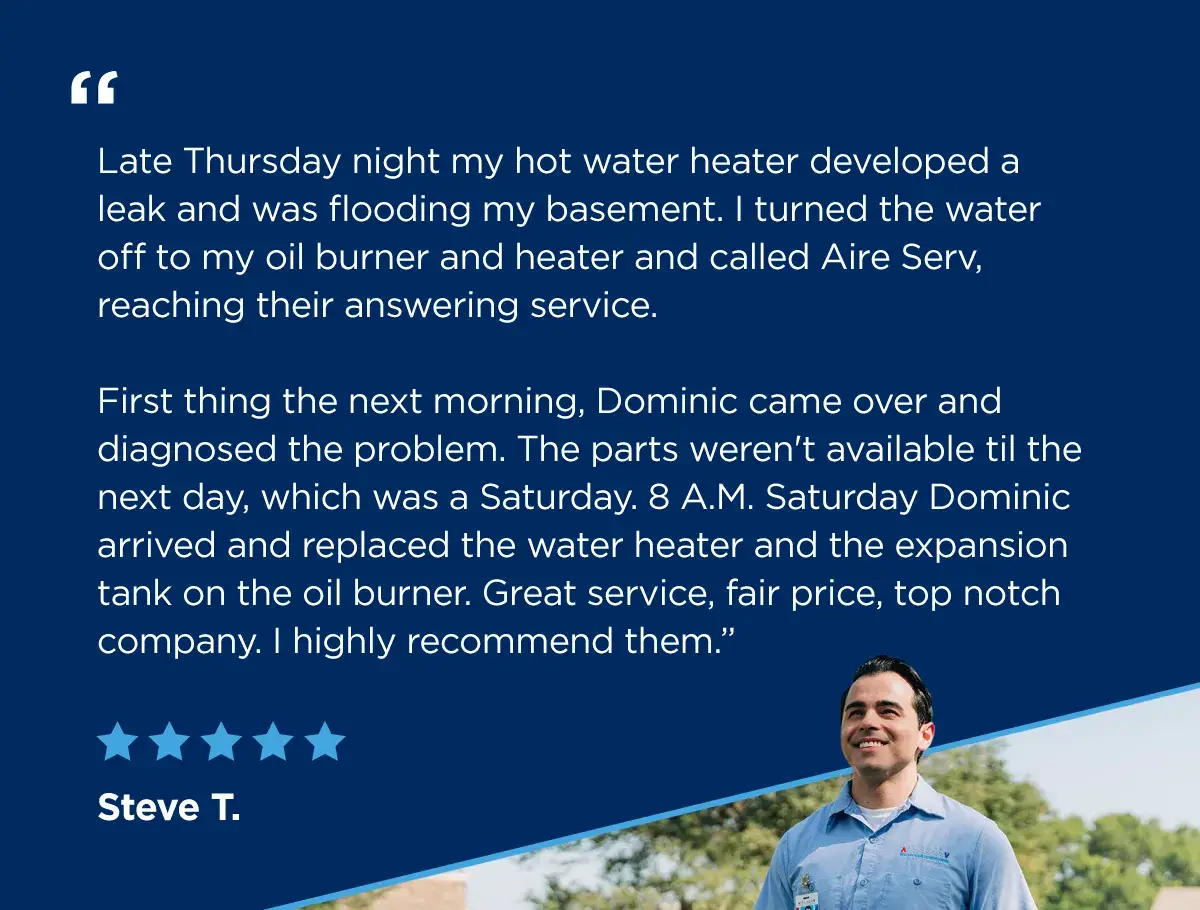
Find Water Heater Installation Service Near You
Get your home back to normal with service from the experts at your local Aire Serv for dependable water heater installation services.
All Aire Serv franchises are locally owned and operated and may offer fewer or more services than those listed here. To learn more about water heater installation offered in your area, contact the Aire Serv nearest you for details or a customized on-site assessment.
Inflation Reduction Act Rebates And Tax Credit
The Inflation Reduction Act (IRA) is a concerted effort to dramatically reduce emissions, slash Americans’ energy costs, create high-paying jobs, and boost our country’s efforts to address the growing climate crisis. Click the link below to learn more about how the IRA rebates can help your family.
[Explore Rebates]
 Click to call
Click to call
